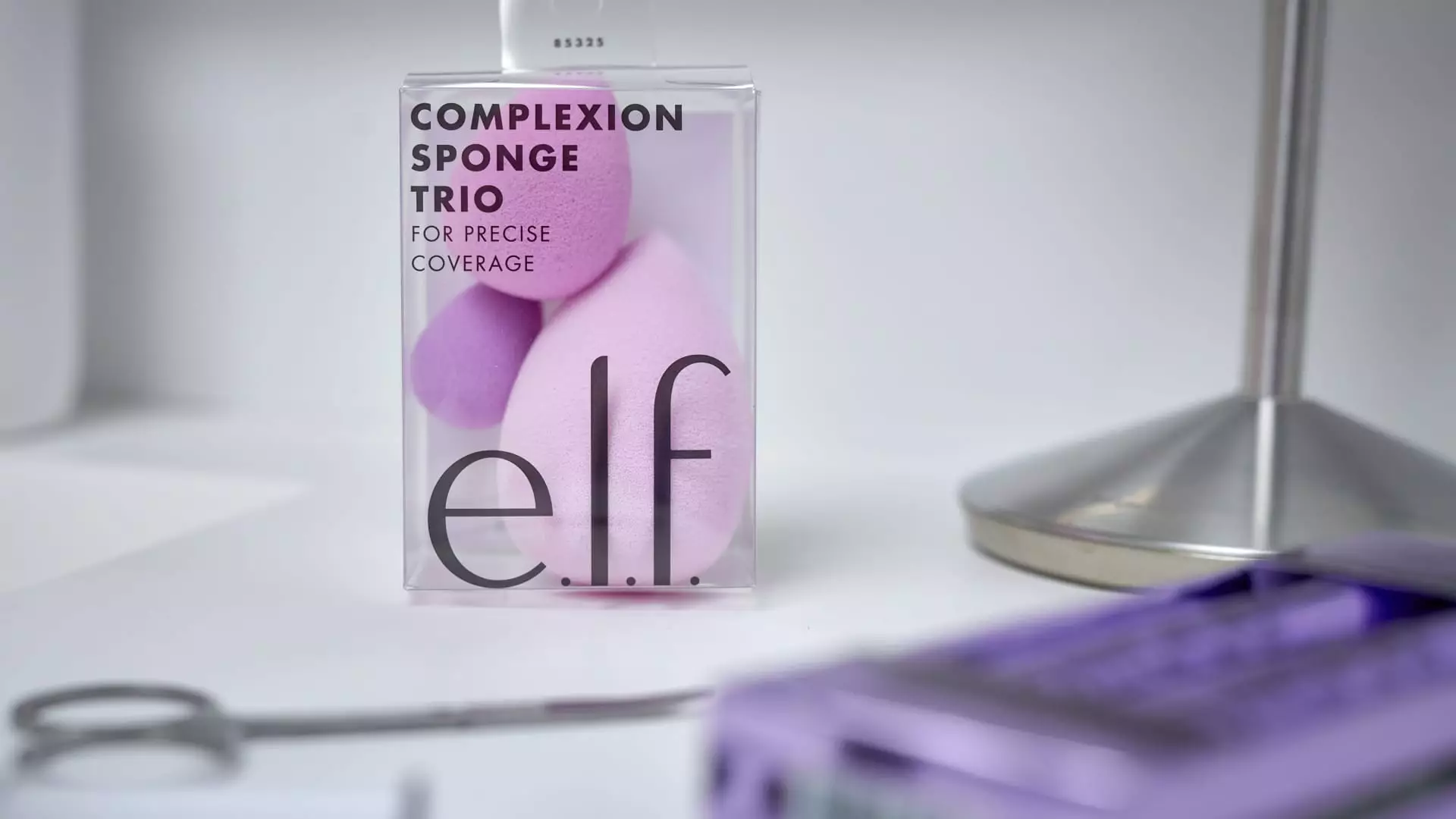E.l.f. Beauty, a company that has made significant strides in the cosmetics sector in recent years, has unexpectedly adjusted its full-year forecast following a notable drop in its profits during the fiscal third quarter. The drop, documented as a hefty 36%, coupled with disappointing sales trends in January, paints a concerning picture for a brand that has been considered one of the frontrunners in the beauty industry. Despite reporting holiday sales that surpassed projections, the earnings fell short of expectations, leading to a dramatic decline in its stock price, which dropped over 20% in after-hours trading on Thursday—a clear signal of investor alarm.
Analyzing the numbers reveals the extent of the struggle: E.l.f. reported a net income of $17.3 million, equating to 30 cents per share for the three-month period ending December 31, down from a profit of $26.9 million, or 46 cents per share, in the same timeframe the previous year. Although revenue climbed to $355 million—a substantial 31% increase from $271 million year-over-year—it starkly contrasted with analyst predictions, highlighting a gap between growth expectations and actual financial performance.
In light of these outcomes, E.l.f. has revised its sales outlook, now anticipating revenue between $1.3 billion and $1.31 billion, a stark departure from earlier expectations of up to $1.34 billion. This downward adjustment has raised concerns among investors, particularly with a single quarter left in the fiscal year. Adjusted earnings per share are also expected to lag behind previous estimations, now projected between $3.27 and $3.32 instead of the anticipated $3.54.
The implications of these adjustments have reverberated through the stock market, raising questions about the sustainability of E.l.f.’s once-rapid growth trajectory. A detailed analysis shows that forthcoming earnings for the current quarter might hover between 66 cents and 71 cents per share, dramatically below Wall Street’s expectation of 97 cents—a clear indication that the company is grappling with more than just seasonal fluctuations.
CEO Tarang Amin, in a candid interview with CNBC, downplayed the severity of the company’s challenges, attributing the recent downturn to a broader slowdown in the beauty market and difficult year-over-year comparisons. He pointed out that the mass cosmetics segment saw a 5% decline in January and speculated that dual influences—the impact of post-holiday discount exhaustion and diminished online “social commentary”—played pivotal roles in stifling sales.
Amin’s observation about “social commentary” underscores an interesting aspect of contemporary beauty marketing. The heightened sensitivity surrounding social media discussions—particularly in light of the LA wildfires and prevailing uncertainties surrounding platforms like TikTok—has noticeably impacted engagement. Marketing strategies that rely heavily on social media buzz might need reevaluation if the expected engagement doesn’t translate into sales.
Furthermore, Amin addressed potential supply chain hurdles, stating that E.l.f. currently sources about 80% of its materials from China. While the recent imposition of new tariffs has raised concerns surrounding profit margins, he expressed cautious optimism that the 10% duties introduced are less burdensome than initially forecasted, hinting that price adjustments might not be necessary at this juncture.
Despite these setbacks, E.l.f. continues to view itself as a leader in the beauty market, even amid these challenges. The company has built a reputation for providing affordable yet high-quality alternatives to more expensive prestige brands. However, as growth rates start to slow and recent product launches fail to ignite consumer excitement as they once did, adapting its strategy may be paramount.
Amin stressed that E.l.f. plans to invest the profits generated back into the business, focusing on enhancing inventory management systems, augmenting infrastructure, and driving international expansion—all crucial elements that could strengthen the brand’s position in a competitive market.
While E.l.f. Beauty has enjoyed significant success in the cosmetics industry, recent trends highlight ongoing challenges that the company must navigate proactively. As it recalibrates its forecasts and strategizes for the future, monitoring consumer behavior and adapting marketing strategies will be vital for sustaining its growth momentum in a rapidly evolving beauty landscape.

